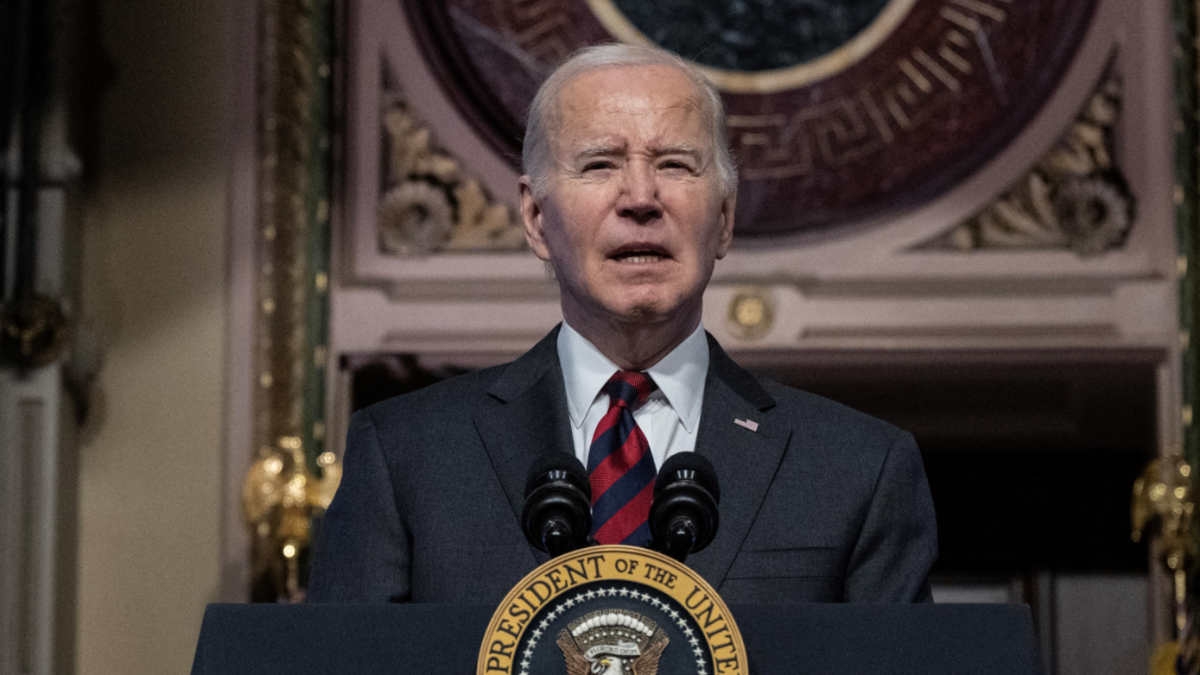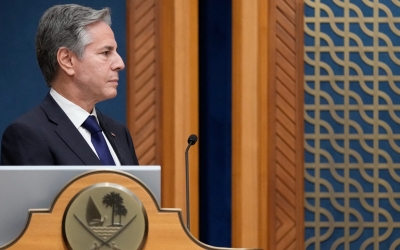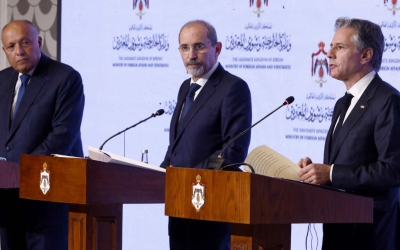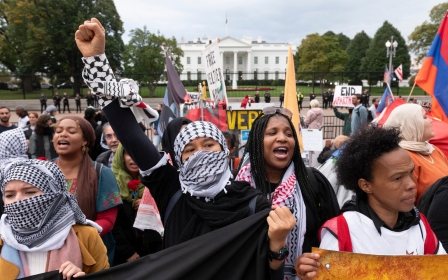Israel-Palestine war: Truce extension comes as Biden faces calls to condition military aid

The extension of a truce to the fighting in Gaza will relieve growing pressure on US President Joe Biden to examine conditioning military aid to Israel, as lawmakers return to Washington from the Thanksgiving holiday.
On Monday, Qatar announced that mediators had reached an agreement to extend the truce between Israel and Hamas by an additional two days.
“We’re going to keep working for an extension to the pause again,” US National Security Council spokesman John Kirby said. “We want to see all the hostages out and this is the best way to get them out.”
The Biden administration has defended its policies of unconditional aid to Israel by pointing to the release of hostages and its ability to surge aid into Gaza.
But the additional two-day truce may prove to be a short reprieve for the Biden administration, as it faces calls from a small but growing number of Democratic lawmakers to attach some strings to Israel’s military aid.
New MEE newsletter: Jerusalem Dispatch
Sign up to get the latest insights and analysis on Israel-Palestine, alongside Turkey Unpacked and other MEE newsletters
On Sunday, US Senator Chris Murphy became the latest Democratic lawmaker to say the US should consider conditioning military aid to Israel.
“We regularly condition our aid to allies based upon compliance with US law and international law. And, so, I think it’s very consistent with the ways in which we have dispensed aid, especially during wartime, to allies, for us to talk about making sure that the aid we give Ukraine or the aid we give Israel is used in accordance with human rights laws,” Murphy said.
“And that’ll be a conversation we will all be engaged in when we get back to Washington on Monday.”
Democratic Senator Michael Bennet, who sits on the Senate Intelligence Committee, also said he would consider conditioning aid to Israel, telling CBS, “I think that’s a debate we’re going to have in the coming days.”
Calls for Washington to re-examine its no red-lines policy of military aid to Israel have gained momentum since US Senator Bernie Sanders penned an op-ed in the New York Times, calling for the shift.
During the Thanksgiving holiday, Biden said that it was a “worthwhile thought”, but added it was not a step he was willing to take early on in the war, stating: “I don’t think if I started off with that we ever would have gotten to where we are today.”
'I’m disappointed in myself'
The Biden administration has defended its unconditional embrace of Israel, saying that it has allowed them to exert influence on its ally behind the scenes.
“Our engagements with the Israelis are helping them to think carefully about what they are about to do, to put up guardrails, and to check rash impulses,” a former senior US official familiar with the administration’s thinking, previously told MEE.
On Sunday, The Washington Post reported that US officials believed that their outreach had helped convince Israel to limit the size of their ground offensive into Gaza, with an unnamed senior US official saying Israel had deployed about a third as many troops into Gaza as they had initially planned after consulting with US military officials.

But Biden has also faced pressure over his position.
MEE reported in October that State Department officials had penned dissent cables calling for the US to push Israel for a ceasefire.
The Biden administration’s stance has pitted senior officials within the National Security Council against younger staffers, particularly those from Muslim and Arab backgrounds.
According to The Washington Post, the concern among Arab and Muslim staff traces back to the outbreak of the war and an email immediately after the 7 October attack expressing empathy with Jewish officials and those with ties to Israel.
Jewish staffers were appreciative of the email but Arab and Muslim officials were not addressed, and "felt it was tone-deaf to their concerns, given that Israeli officials were vowing to carry out a scorched-earth campaign in Gaza".
Biden's decision to ignore a call from Vice President Kamala Harris not to reiterate an unverified Israeli claim that Hamas beheaded Israeli babies also riled some staff members, according to The Washington Post. The White House later walked back the comment.
More recently, the release of hostages has helped the Biden administration shift the narrative of the war. It also comes amid a notable change in senior US official's comments about Palestinian casualties.
The State Department's top Middle East official said in November that deaths in the Gaza Strip may be higher than are being reported. Those comments contrasted sharply with Biden's suggestion in October that the death toll reported by Palestinian health officials in Gaza was not reliable.
US Secretary of State Antony Blinken said in November that "far too many" Palestinians have "died and suffered" as Israel wages war in the Gaza Strip and that "much more needs to be done in terms of protecting civilians”.
According to The Washington Post, Biden reportedly told a group of Muslim-American leaders, “I’m disappointed in myself,” after his earlier questioning of civilian deaths and pledged to change course: “I will do better.”
Middle East Eye delivers independent and unrivalled coverage and analysis of the Middle East, North Africa and beyond. To learn more about republishing this content and the associated fees, please fill out this form. More about MEE can be found here.





